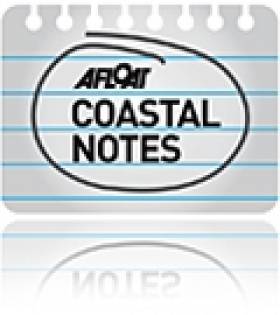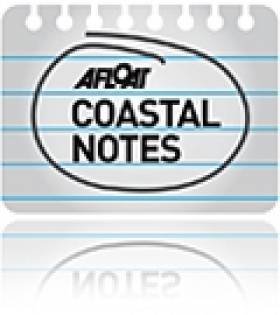Displaying items by tag: Erosion
Coastal Community Cut Off By Cliff Collapse
#CoastalNotes - Heavy rains last week caused the latest in a series of landslides that has cut off a coastal village in Co Kerry, as TheJournal.ie reports.
Only pedestrian access is currently permitted on the Cliff Road to Rossbeigh after a partial collapse of the roadside into the sea on Thursday (17 September).
But the cliff fall is no surprise to locals who have complained for the last two years over increasing erosion caused by various heavy rains and severe storms.
TheJournal.ie has more on the story HERE.
'Millions' Not Needed To Combat Erosion Threat To Ireland's Coastline Says Academic
#CoastalNotes - Solutions to deal with the erosion of Ireland's coastline to not have to cost "millions", a geography lecturer tells The Irish Times.
The comments by University College Cork's Dr Max Kozachenko follow a less heartening scenario described by fellow UCC academic Prof Robert Devoy, who said last month that erosion rates - exacerbated by increasingly extreme weather - will soon force Ireland's coastal counties to look "very clinically" at what parts are most worth saving via expensive engineering works.
However, Dr Kozachenko says that such a take-it-or-leave-it solution is "simplistic" when a co-ordinated approach involving coastal monitoring and new approaches to managing the effects of wind and wave action could stem the damage to Ireland's coastline for little expense.
He cites the placing of rock fragments in front of protective rock armouring or concrete walls to scatter waves and dissipate their energy as a cheap but effective option, and also notes the success of offshore artificial reefs in Japan that have had the added benefit of assisting in biodiversity.
The Irish Times has much more on the story HERE.
Erosion And Harmful Fishing Pose Double Threat To Ireland's Coastline
#Coasts - Increasing coastal erosion and weathering will soon force Ireland to make hard decisions about what parts of the coastline are too expensive to protect, according to a university professor.
As The Irish Times reports, Prof Robert Devoy of University College Cork says that with erosion rates threatening to jump far beyond the current average of up to 1 metre a year, Ireland's coastal counties would have to look "very clinically" at what parts are most worth concentrating their engineering efforts - expensive measures that simply cannot be afforded for all coastal areas.
The senior lecturer in the UCC Department of Geography says: "We need to assess which bits of the coast are most vulnerable to flooding and erosion and which bits of coast from a heritage viewpoint are important to retain and protect."
This sobering warning comes after Lorna Siggins' commentary on the state of Ireland's coastal marine environment, as six new marine protected areas are set to be enacted in law.
The six sites around the coast earmarked for designation as Special Areas of Conservation were proposed by Heritage Minister Jimmy Deenihan more than a year ago
But as Siggins states: "There’s turbulence ahead, if the State’s approach to fulfilling the habitats directive on land is anything to go by."
Aside from the "inconsistencies, poor communication and lack of stakeholder engagement" of the likes that have undermined bog conservation efforts, there's also the "survival of the fittest" attitude among the fishing fleet engendered by uneven implementation of the Common Fisheries Policy to contend with.
And according to Siggins, even the reformed CFP spearheaded by Marine Minister Simon Coveney will do "little to protect sensitive spawning grounds".
The Irish Times has much more on the story HERE.

























































